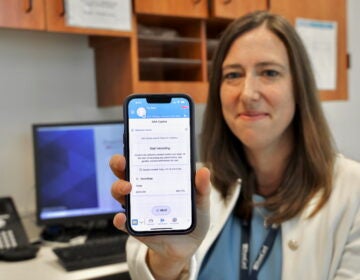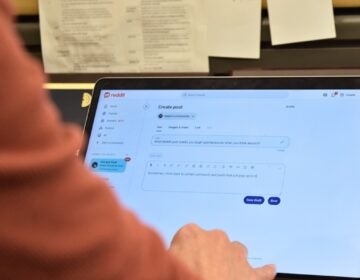A voice-over artist asks: Will AI take her job?
If a text-to-speech clone can capture her in a moment, is there a role for her? And how will artificial intelligence affect creativity?
Listen 4:41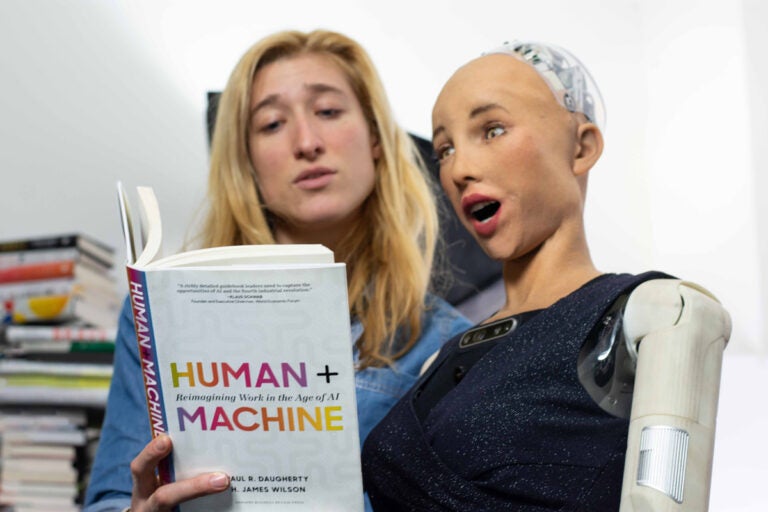
Sarah Rose Siskind reads a book to Sophia the Robot, an interviewer, guest speaker and host with over 16,000 YouTube subscribers. (Image courtesy of Nikki Thomas)
This story is from The Pulse, a weekly health and science podcast.
Subscribe on Apple Podcasts, Stitcher or wherever you get your podcasts.
My name is Nikki Thomas, and I am a voice-over artist. I speak into a microphone, and my voice is captured. I can change my accent. My pitch. My mood.
But it’s still me, right? Until it’s not. Because I am being replaced by my own voice — an AI version of my voice.
It starts with TTS, or text-to-speech. That’s the same technology used to create Siri or Alexa. It captures a human voice and then artificially replicates that sound to read any digital text out loud.
I got hired for a TTS job. I delivered my spoken words to the client. Then a few weeks later, I could type words into a text box, and my voice clone said them back to me.
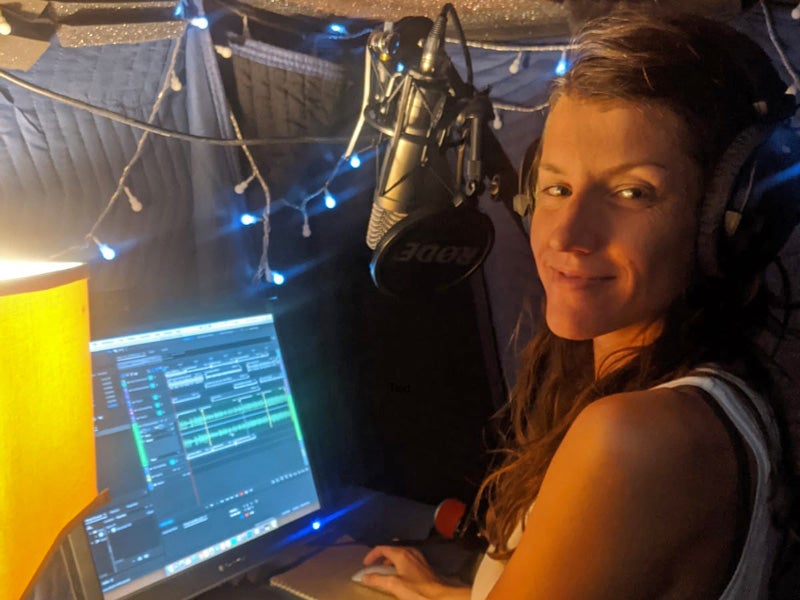
I asked longtime client and audio engineer Daren Lake to compare the two. And while concluding that the AI voice actually sounded pretty good, he could still hear that a robot made it.
“It’s got these warbling artifacts. I call it the zoom effect or the matrix sound,” he said. Despite thinking I might be able to get away with it, the engineer in him didn’t like it.
So one can tell the difference — now. But when this technology gets better, could this be my new method of work? I record just a few voice samples and, before I know it, an 11-hour audiobook is produced with a voice that sounds just like mine in the time it takes me to copy and paste a document? It would be much more accurate, and reliable. An AI voice never fatigues or needs a week to recover from the flu.
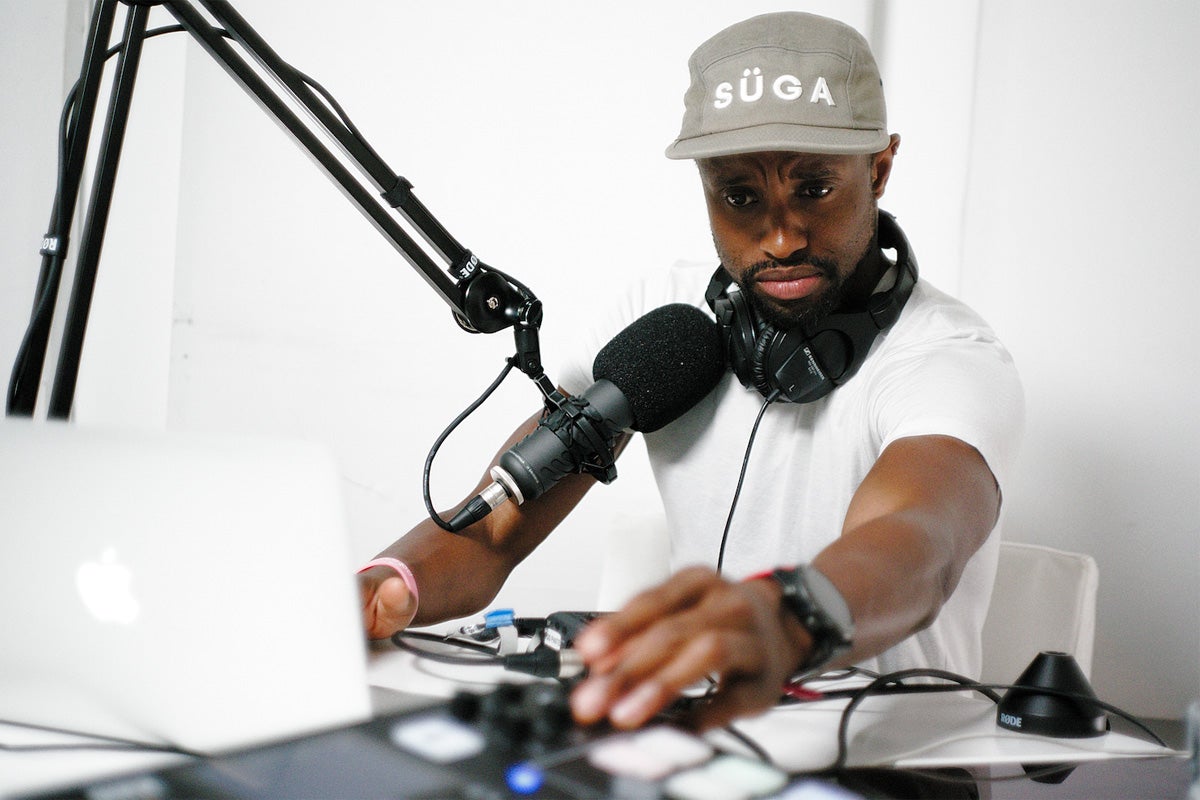
Could I still consider myself a voice-over artist? If there’s even a role for me. How will artificial intelligence affect creativity — and artistry?
I took the question to Sarah Rose Siskind, one of the creators of a robot named Sophia. Sarah laughed when I asked if she was threatened by a robot taking her job. She told me about an 11-hour day spent getting Sophia to wink — reason enough for her to believe her job was not at risk.
Sophia the Robot is an interviewer, guest speaker and host with over 16,000 YouTube subscribers. Siskind was on the writing team and worked with a group to shape Sophia’s personality.
“An artist is a major component of her personality because we wanted her personality to be fascinated with areas not traditionally considered the domain of robots,” Siskind said. “However, it is hard to describe her outside of a relationship to the humans who came up with the idea of creating her.”
Subscribe to The Pulse
That’s because it’s a one-way exchange. Sophia ceases to exist without the humans behind her. But the humans continue to exist — and evolve — without her. She’s not the artist. They are.
The same holds true for the art of creating with a voice. It’s in which words we emphasize, which opinion our pitch gives. Voice reflects the world around it. This copied voice — this synthetic slice of my former self — can only ever exist in the past. While I continue to evolve as an artist, she relies on old takes, like a washed-out actor.
Sure, it’s a nice way to capture my voice at a moment in time. But she exists purely in my image — or in this case, a very specific time and place in which I created her but then moved on.
WHYY is your source for fact-based, in-depth journalism and information. As a nonprofit organization, we rely on financial support from readers like you. Please give today.





